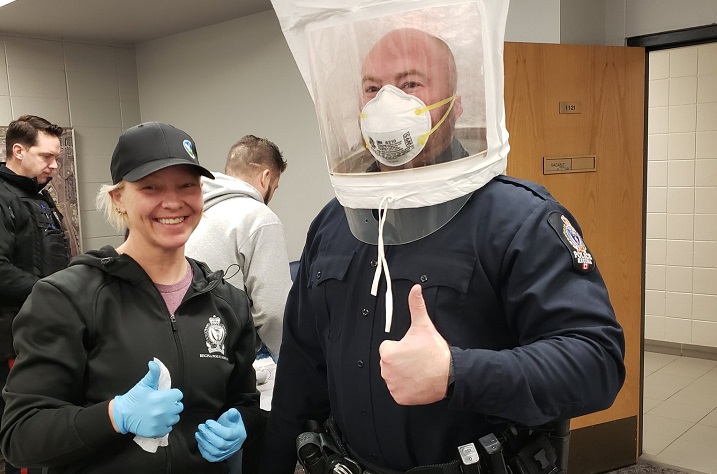The Regina Police Service says it is continuing to take steps in the department to keep the city and staff safe against the novel coronavirus.

Regina police Chief Evan Bray says the force has redeployed officers, moving them away from their traditional roles.
“Our school resource officers and our community engagement unit, as of this weekend, will be out on the front line in the city of Regina helping our citizens and helping keeping them safe,” Bray said in a video posted to the Regina police Twitter page.
Bray said it’s also made changes to personal protection equipment for all of its frontline officers.
“That means you may see them dressed a little bit different. We’ve got protective gloves and masks that help them be able to respond to situations in our community, but keep them safe,” Bray said.
“They won’t be wearing that all the time, but there may be certain situations that they do and I just want the public to be aware.”
Bray said the front door of the police station continues to be locked to the public, but its front desk is still in operation.
Residents are still encouraged to use its online reporting tool found on its website or call in.
Questions about COVID-19? Here are some things you need to know:
Health officials say the risk is low for Canadians but warn this could change quickly. They caution against all international travel. Returning travellers are asked to self-isolate for 14 days in case they develop symptoms and to prevent spreading the virus to others.
Symptoms can include fever, cough and difficulty breathing — very similar to a cold or flu. Some people can develop a more severe illness. People most at risk of this include older adults and people with severe chronic medical conditions like heart, lung or kidney disease. If you develop symptoms, contact public health authorities.
To prevent the virus from spreading, experts recommend frequent handwashing and coughing into your sleeve. And if you get sick, stay at home.
For full COVID-19 coverage from Global News, click here.







Comments